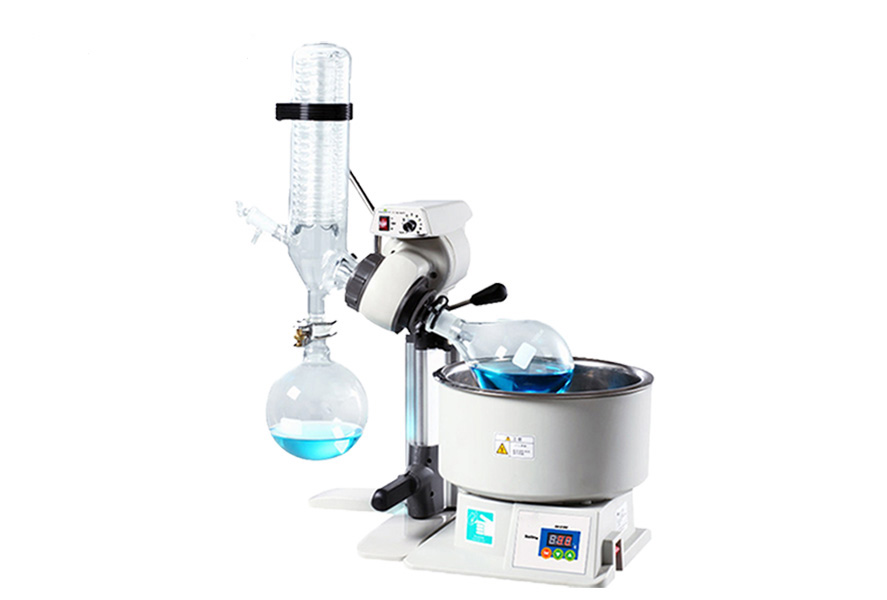As a separation and purification device, rotary evaporator is widely used in laboratories and industrial production. The following are the main application areas of rotary evaporators:
1. Chemical synthesis
Removal of reaction solvent: In organic synthesis, a rotary evaporator is used to remove the solvent after the reaction, thereby obtaining pure products.
Concentrated chemicals: Intermediate or finished products in chemical reactions can be concentrated for subsequent processing and analysis.
2. Drug development
Extraction of active ingredients: In pharmaceutical research, a rotary evaporator is used to extract active ingredients from plants or other biological materials.
Solvent exchange: Exchange the organic solvents used in the drug preparation process with more suitable solvents to improve the stability and solubility of the drug.
Purification of drugs: Removing impurities through evaporation to improve the purity and quality of drugs.
3. Biotechnology
Sample concentration: In the process of preparing biological samples, a rotary evaporator is used to concentrate culture or extraction solutions to increase the concentration of components.
Removing solvents: Removing solvents from biological samples to obtain clean bioactive substances.
4. Food industry
Spice and pigment extraction: used to extract food additives such as spices and pigments from materials, maintaining their original flavor and color.
Food concentration: In food processing, a rotary evaporator is used to concentrate juice, sauces, and other liquid foods to increase the concentration and taste of the product.
5. Environmental Science
Sample pretreatment: In environmental analysis, a rotary evaporator is used to concentrate pollutants in water samples, soil samples, and air samples for subsequent detection and analysis.
Organic solvent recovery: Used for organic solvent recovery in environmental monitoring, reducing the emission of harmful substances and protecting the environment.
6. Pharmaceutical industry
Formulation development: In the process of drug formulation development, a rotary evaporator is used to remove solvents from the formulation, ensuring the purity and integrity of the drug.
Extraction: Used for extracting and concentrating medicinal herbs to increase the component content of medicinal preparations.
7. Petrochemical industry
Petroleum product analysis: In the analysis of petroleum products, a rotary evaporator is used to remove solvents from the sample and obtain the desired analytical sample.
Purification of chemical products: used for the purification and concentration of chemical products to improve their purity and quality.
8. Teaching and Research
Experimental teaching: In universities and research institutions, rotary evaporators are widely used in chemical experimental teaching to help students master the basic principles and operational skills of solvent evaporation and sample concentration.
Research experiment: In research experiments, rotary evaporators are used for various solvent evaporation and sample preparation to improve experimental efficiency and reliability of results.
conclusion
The Shanghai Yetuo rotary evaporator, with its gentle and convenient operation characteristics, is widely used in many fields such as chemical synthesis, drug development, biotechnology, food industry, environmental science, pharmaceutical industry, petrochemical industry, as well as teaching and research. By utilizing the rotary evaporator reasonably, work efficiency can be significantly improved, product quality can be ensured, and strong support can be provided for scientific research and production.


 Alibaba Store
Alibaba Store Tmall Store
Tmall Store Jingdong Sstore
Jingdong Sstore







